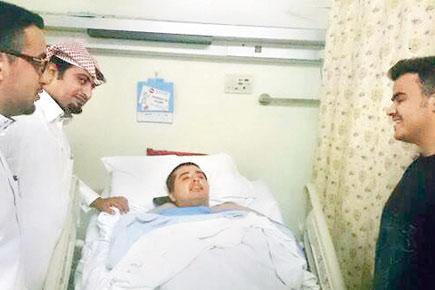Most of the time, social media is blamed for decreasing genuine human interaction

Riyadh: Most of the time, social media is blamed for decreasing genuine human interaction. This story is quite the opposite.
After an accident left him paralysed a year-and-a-half ago, Ibrahim, a 24-year-old Saudi man, ended up bedridden at Riyadh’s King Khaled Hospital.

Ibrahim’s popularity has exploded, with scores of people visiting the man, often with flowers, encouraging notes and other gifts
Over time, visits from his family became less and less frequent, reports, until his loneliness reached a breaking point last week, several months after he’d last seen his family.
That’s when Ibrahim created a Twitter account hoping to communicate with the outside world. “You know? There is no one visiting me now,” he posted, in a tweet. “Not even my brothers or my father! The patients next to me have regular visitors, but no one comes to see me.” He added in a second tweet, “I wish those who know me and those who do not know me would come to visit me. I have become restless, just waiting for someone to visit me. My father and brothers had not visited me for three months.”
Remarkably, his tweets gained traction on the popular social media site. Within an hour, after taking directions from Ibrahim, Saudis began to visit him in the hospital. “We should be there for one another in times of need,” a group of students said after popping in and say hello.
From there, Ibrahim’s popularity exploded, with scores of people visiting the man, often with flowers, encouraging notes and other gifts in tow.
 Subscribe today by clicking the link and stay updated with the latest news!" Click here!
Subscribe today by clicking the link and stay updated with the latest news!" Click here!







